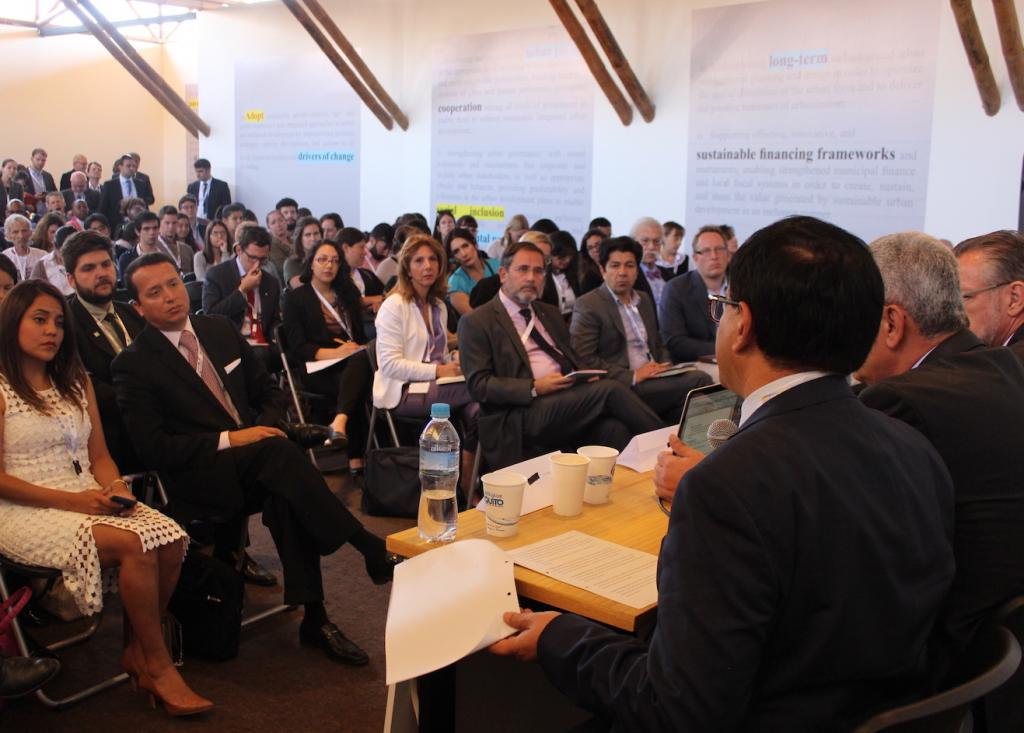Managing migration well: for more inclusive and resilient cities
 19 October 2016. Quito, Ecuador – While migration is a global phenomenon, with 1 in 7 people in the world an internal or international migrant, the effects of migration are most felt at the local level. Already, more than half the world’s population lives in urban areas with 3.9 billion people set to move to city centres by 2030. The majority of the estimated 232 million international and 740 internal migrants move to urban areas. Migration is indeed an urban fact.
19 October 2016. Quito, Ecuador – While migration is a global phenomenon, with 1 in 7 people in the world an internal or international migrant, the effects of migration are most felt at the local level. Already, more than half the world’s population lives in urban areas with 3.9 billion people set to move to city centres by 2030. The majority of the estimated 232 million international and 740 internal migrants move to urban areas. Migration is indeed an urban fact.
Cities and regions are well placed to facilitate access to rights and services for migrants. The closeness to their constituencies makes them important and lead actors in addressing global migration. As cities are the first point of arrival for migrants, they depend on local authorities’ ability to evaluate their needs and provide appropriate services. Therefore, local governments must play a greater role in designing and implementing policies that leverage the development impact of migration and promote more inclusive and resilient cities.
UNITAR jointly with the Joint Migration Development Initiative (JMDI) hosted the event titled “Managing migration well: for more inclusive and resilient cities”, which took place in Quito, Ecuador on 19 October in the framework of the United Conference on Housing and Sustainable Urban Development (Habitat III).
The main objective of the event was to raise awareness on the need to ensure that migration is mainstreamed across all relevant policy areas to ensure effectiveness of migration management.
UNITAR Executive Director Mr. Nikhil Seth addressed the audience and highlighted the need to strengthen local government´s capacities to respond to key migration challenges. Mr. Seth spelled out four areas in which these capacities need to be built and strengthen:
- Statistical capacities. It is crucial to put in place a system to monitor and collect data on migration at the local level;
- Analytical capacities. To understand the collected data to make it policy relevant;
- Institutional capacities. This is essential to register and process migrants, to inform and train migrants and to provide social services;
- Building social awareness. This is imperative at the city level to convert challenges into opportunities, and contribute to end anti-migratory and xenophobic reactions.
With the objective of contributing to strengthen the influence and the role of local and sub-national governments in intergovernmental discussions on migration, UNITAR as member of the inter-agency Joint Migration and Development Initiative (JMDI) has supported the convening of an annual “Mayoral Forum on Migration and Development” since 2013.
The third Mayoral Forum was held last September in the Philippines, bringing together over 100 mayors from around the globe to discuss how to further development with the engagement of diaspora and to pinpoint ways that ensure access and inclusion for migrants and refugees in vulnerable situations especially in urban settings.
In order to support local authorities through training, dialogues and best practices exchange opportunities. UNITAR recently launched its 16th CIFAL Centre in Metro Manila to provide technical support to cities in the Philippines and help them address migration challenges.

